CUNY Law School’s Human Rights and Gender Justice (HRGJ) Clinic, along with MADRE and grassroots partners around the world, organized a series of convenings spanning five continents bringing together representatives of front-line victims’ organizations, civil society organizations, and gender justice advocates to weigh in on policy recommendations.
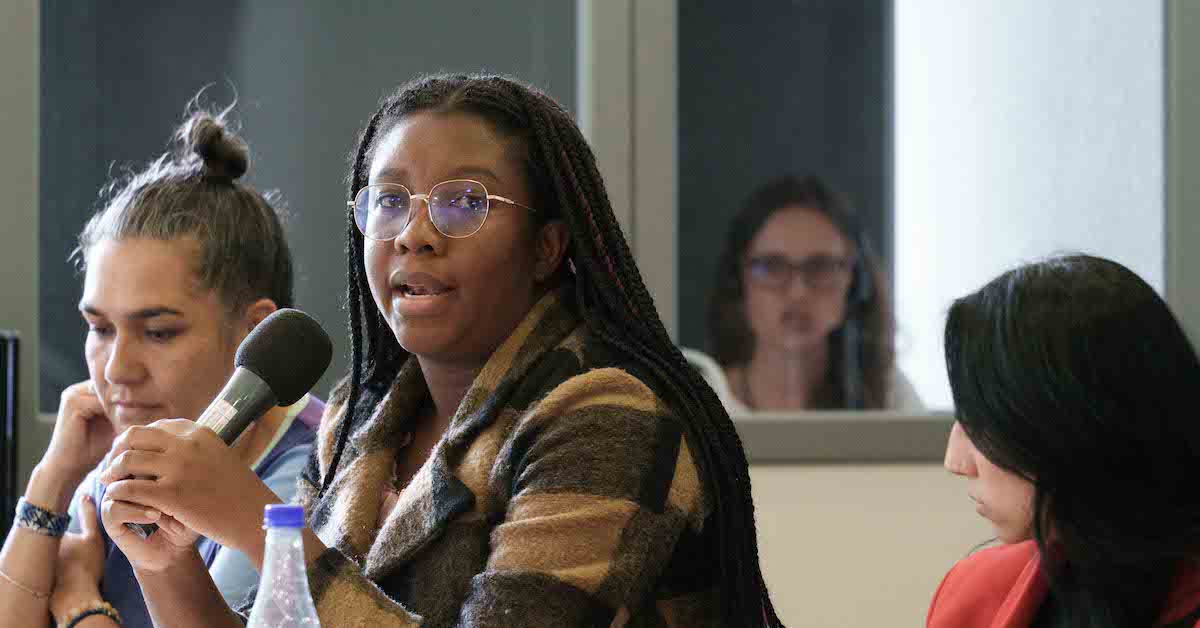
Why Principles for Gender Persecution?
Despite documentation of crimes targeting women, girls and LGBTQI+ people at least as far back as World War II, international law has been slow to treat this as a serious form of persecution. A major step forward came in 2022, when the International Criminal Court’s Office of the Prosecutor (OTP) issued a Policy on the Crime of Gender Persecution, which, for the first time in history, lays out the framework for prosecuting gender-based crimes around the world.
Now OTP is seeking to change the world’s response to gender persecution far outside the courtroom by developing a set of Principles on the Crime of Gender Persecution to guide governments, human rights bodies, judicial actors, and humanitarian rights groups to help prevent this crime against humanity and respond appropriately when it does occur.
Background
In May 2023, a group of UN human rights and international criminal law experts came together to discuss prevention and accountability for gender persecution. They noted the need for a broader set of tools to guide states and accountability mechanisms that go beyond the OTP gender persecution policy paper which specifically focuses on charging gender persecution. In response, OTP launched a process to develop a new document on public principles for addressing gender persecution and opened a call for civil society submissions.
Global Consultations
OTP launched this process in 2024 by seeking input from grassroots civil society organizations. Over the course of the year, MADRE and CUNY Law School’s Human Rights and Gender Justice (HRGJ) Clinic, along with grassroots partners around the world, organized a series of convenings spanning five continents bringing together representatives of front-line victims’ organization, civil society organizations, and gender justice advocates to weigh in on the Policy’s recommendations.
Participants have focused on four key questions:
1) How can we prevent gender persecution from happening in the first place?
2) How can we protect women and girls, LGBTIQ+ people, and others targeted for
gender-based violence, including sexual violence, during armed conflict?
3) How can we ensure the participation of survivors of gender persecution in
peacebuilding and accountability processes?
4) How can relief and recovery efforts around armed conflict best respond to victims
of gender persecution?
THE CONSULTATIONS
April 2024: Bogotá, Colombia
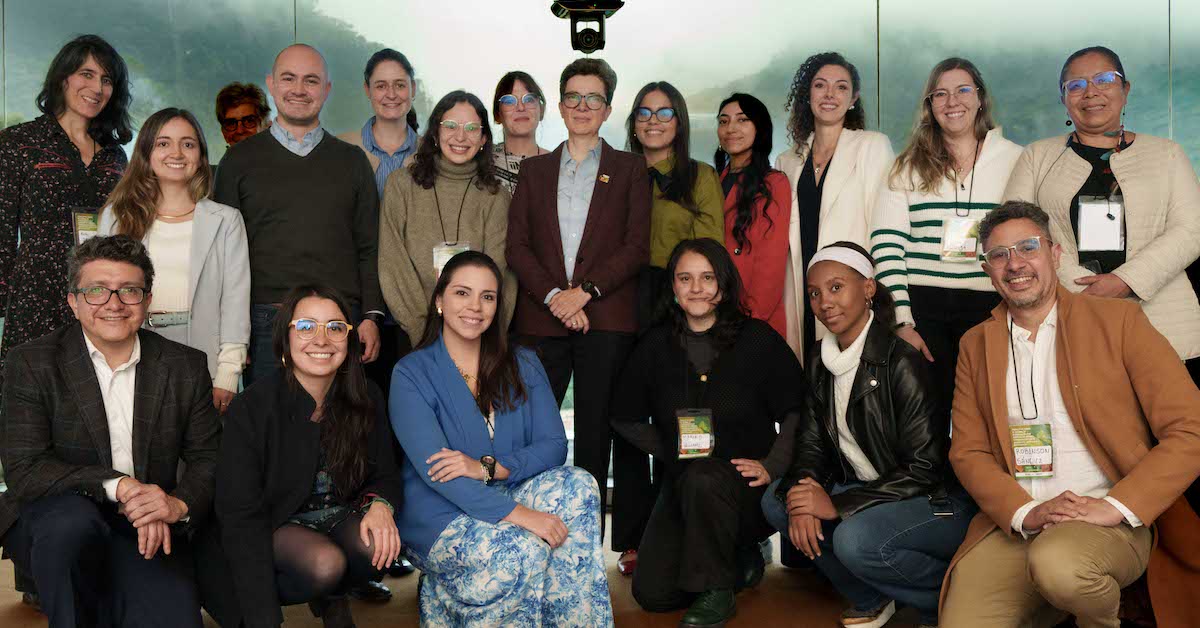
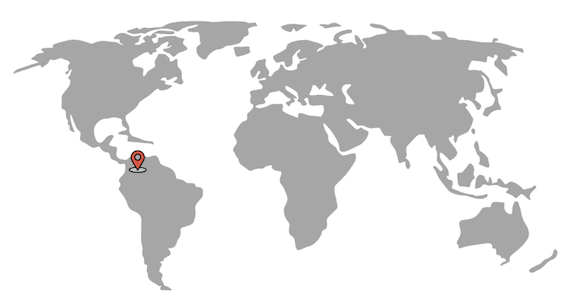
The meetings began in April in Bogotá, Colombia, with a forum organized by ICC Special Advisor on Complementarity Rene Fernando Urueña Hernandez. Activists gathered representing groups doing frontline work to confront gender-based violence, protect reproductive rights, and support Indigenous Peoples, Afro-descendent Peoples, and LGBTQI+ communities.
May 2024: Winnipeg, Canada
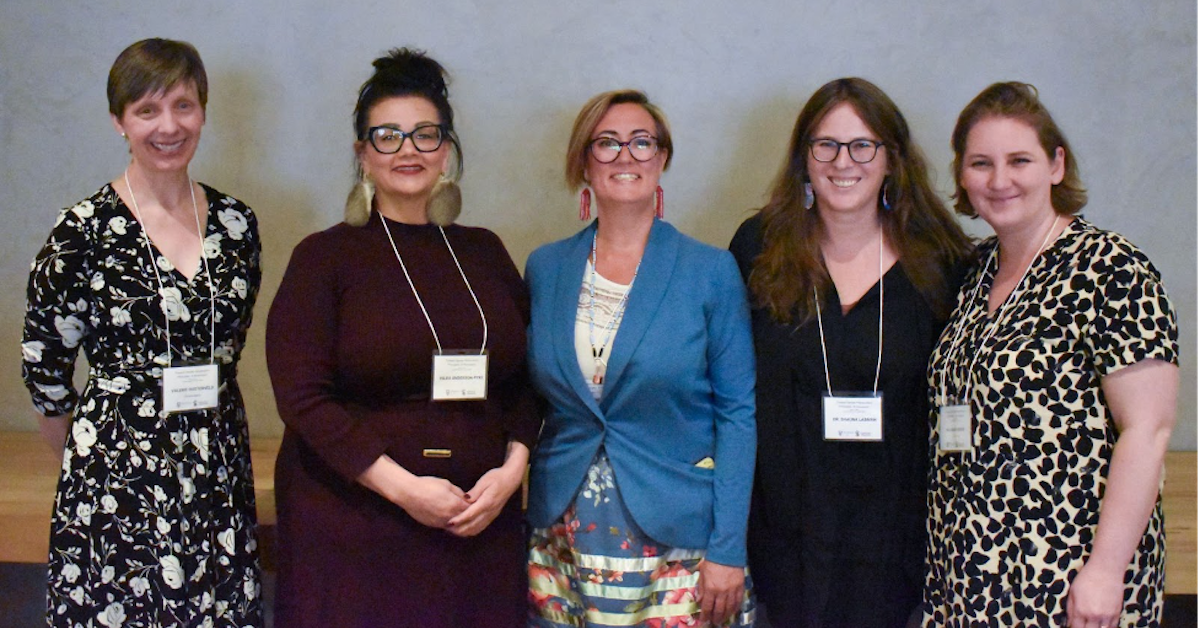
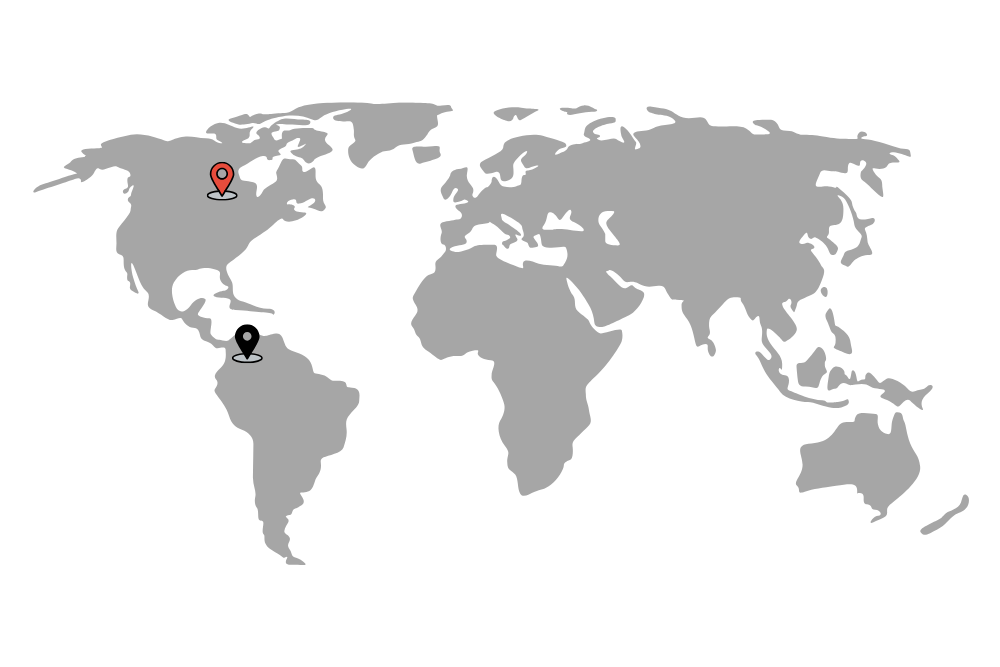
Advocates gathered at a convening in Winnipeg, Canada, in May, organized by ICC Special Advisor on Crimes Against Humanity Valerie Oosterveld. The event included academic experts, community advocates, practicing lawyers, and health professionals with expertise in sexual and gender-based violence, Indigenous rights, Two-Spirit and LGBTQI+ rights, immigrant and refugee rights, intergroup conflict and reconciliation, health equity (including Black health equity), international humanitarian law, and sustainable development.
July 2024: Johannesburg, South Africa
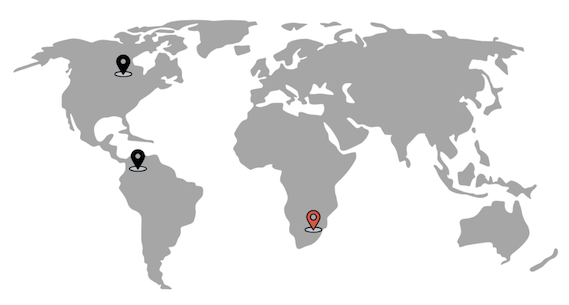
Participants from 16 African countries joined a consultation in Johannesburg in July organized by the Southern Africa Litigation Center. The gathering included one panel on anti-LGBTQI+ legislation in countries including Uganda, Ghana, and Kenya, and another panel on ways that survivors of gender persecution could meaningfully engage with accountability mechanisms.
September 2024: Toronto, Canada
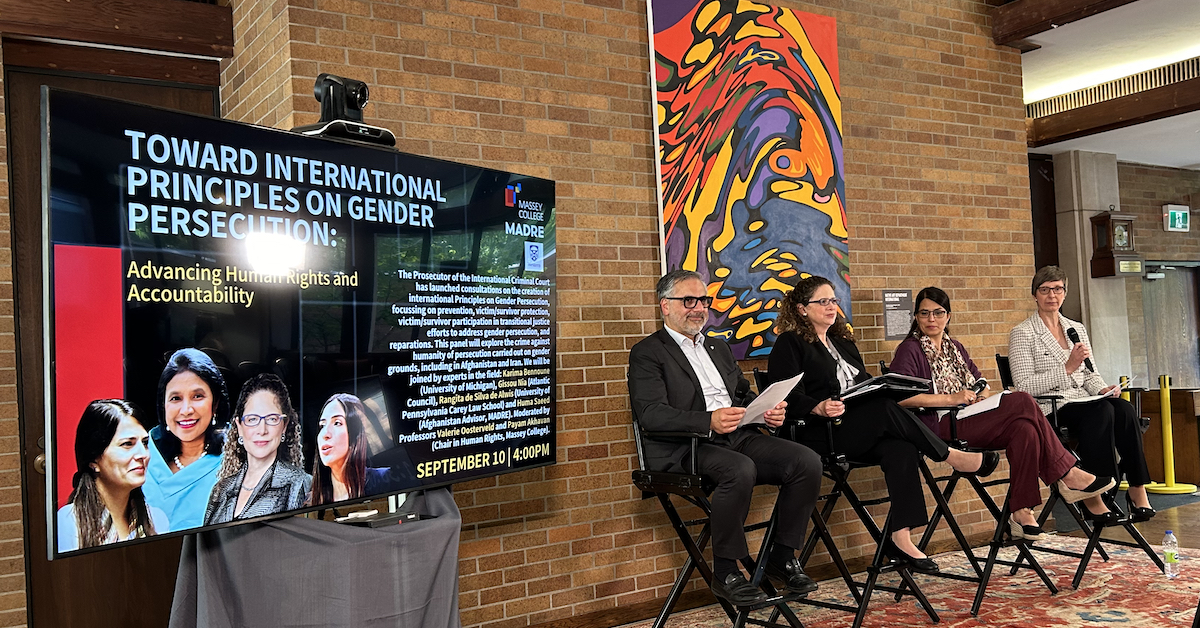

Advocates gathered at Massey College, University of Toronto in September, organized by ICC Special Adviser on Crimes Against Humanity Valerie Oosterveld in partnership with the Massey College Chair in Human Rights, Payam Akhavan, and the Afghan lawyer Ghizal Haress. Participants included a Canadian Senator, advocates from the Afghan and Iranian diaspora (including a refugee LGBTQIA+ activist), and lawyers from the University of Toronto Faculty of Law’s International Human Rights Program and its Afghanistan working group.
October 2024: Lutruwita/Tasmania, Australia
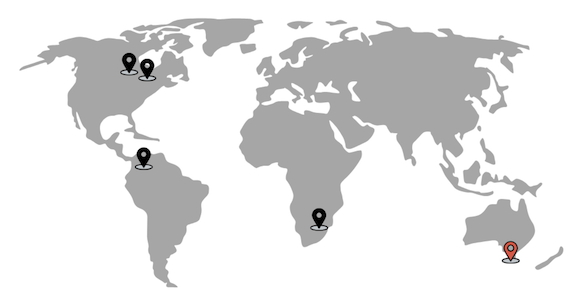
A steering committee of legal experts including then-ICC Special Advisor on War Crimes Tim McCormack convened in Lutruwita/Tasmania, Australia, to consult with local communities on their lived experiences of gender persecution. They identified four cohorts to include in the research: Tasmanian First Nations peoples (palawa), LGBTQI+ communities, people with disability, and refugee, migrant, and asylum seeker communities. Members of each of the four communities have first-hand knowledge and understanding of the systemic causes of gender persecution, for example, racism, sexism, misogyny, trans- and homophobia, ableism, and patriarchy, and the ways in which these causes also deny them redress and protect perpetrators.
October 2024: The Hague, Netherlands
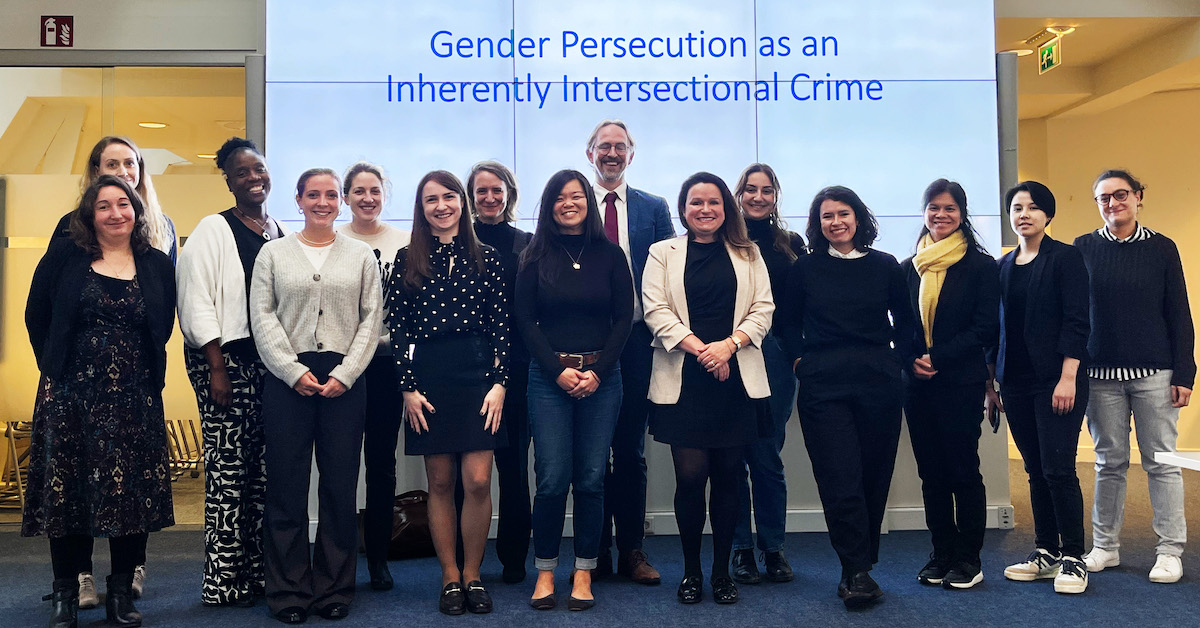
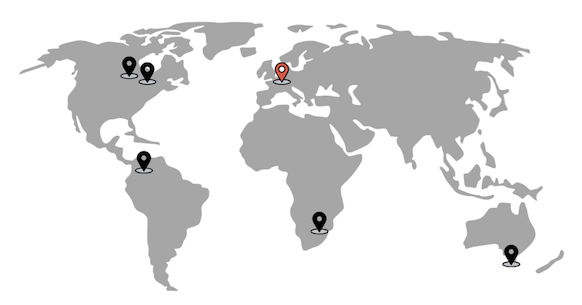
After surveying its members about key topics, the Women’s Initiatives for Gender Justice organized a hybrid forum on the development of gender persecution principles in The Hague. Featured speakers included Azadah Raz Mohammad, legal advisor for the Strategic Litigation Project at the Atlantic Council; Valérie Gabard, co-director of UpRights and former UN legal advisor; and Grace Acan, survivor activist from Uganda and leader of the Women’s Advocacy Network. Speakers advocated for a strong legal framework that not only prosecutes but also prevents gender persecution, arguing that principles that criminalize gender-based oppression on a structural level could serve as a deterrent and provide survivors with mechanisms for seeking justice in the future.
Next Steps
The Office of the Prosecutor will synthesize recommendations from the consultations into a document to be published in 2025.
Recommendations
Though coming from many different countries and representing communities with varying experiences of gender violence and conflict, participants coalesced around key recommendations for the Policy on the Crime of Gender Persecution. There was also a recognition that the Principles can also be a tool towards the bigger goal of tackling the discrimination that leads to gender-based violence. This document — and the process of developing it — can help spread the term “gender persecution” beyond courtrooms and help transform society.
While the OTP’s mandate is largely limited to accountability, activists have called for a broader expansion of the Principles to cover the other pillars of the Women, Peace and Security agenda. Activists have also called for better recognition and understanding of gender persecution under human rights law, including in general comments and recommendations produced by human rights treaty bodies.
Key recommendations included:
- Accountability processes must be survivor-driven.
Meaningful civil society participation by people historically targeted for discrimination, including multi-faceted discrimination, is critical in every aspect of identifying and responding to gender persecution. Survivors must play a key role in creating sustainable peace and transitional justice processes. Their rights to participation in redress mechanisms should be upheld and prioritized. - Accountability processes must recognize survivors’ intersectional identities.
Gender discrimination often intersects with other forms of oppression, including discrimination based on race, ethnicity, nationality, religion, indigenous status, immigration status, class, or disability status. Gender persecution should be interpreted with a broad understanding of gender, recognizing that gender is not homogenous and includes lesbian, gay, bisexual, transgender, questioning, and intersex (LGBTQI+) people. When addressing gender-based violence, accountability mechanisms and human rights institutions should take into consideration intersecting forms of discrimination that may also underlie a perpetrator’s intent to do harm and that shape survivors’ experience of harm. - States must be held accountable.
States must uphold their human rights obligations, particularly those obligations pertaining to women, girls, and LGBTQI+ persons, who are disproportionately impacted by violence, discrimination, and an intersecting swath of human rights violations. To this end, Human Rights Treaty Bodies should make clear states’ responsibility to protect against gender persecution within their mandates. This includes gender persecution by state actors as well as state responsibility for acts of non-state actors and state responsibility for taking complaints about gender violence seriously, particularly in communities that are overpoliced and underprotected. - State responsibility must address underlying biases that fuel and perpetuate gender persecution.
Responses to gender persecution must address gender inequality and harmful gender stereotypes as well as intersecting forms of bias and must enable women-led and LGBTQI+-led civil society organizations and human rights defenders to safely support their communities. - Accountability for gender persecution must include prevention strategies.
Gender-based crimes are used against victims to enforce gender regulations and to impose gender stereotypes, for example, in roles, behaviors, activities or other attributes. Gender regulations often intersect with other discriminatory regulations used to reinforce systems of oppression, including, but not limited to, race, ethnicity, nationality, religion, Indigenous status, immigration status, class, or disability status. Responses should address the full range of structural inequalities that lie at the heart of gender persecution and should recognize that victimization impacts entire communities for generations. - Civil society organizations are experts on their communities and must be at the center of all accountability and justice processes.
Civil society can inform these processes with contextual knowledge crucial to understanding communities, including but not limited to long-term impacts of colonialism; historical gender, racial, and ethnic discrimination; impacts of climate breakdown; and structural oppressions that may not be recognized by non-local actors. - The Principles should build on existing frameworks and learning.
For example, Canada’s Truth and Reconciliation Calls to Action, its Murdered and Missing Indigenous Women and Girls (MMIWG) report, and the MMIWG National Inquiry, can be a useful framework. Other countries’ platforms and recommendations for preventing and responding to gender-based crimes also should be leveraged. - UN and regional human rights treaty bodies must produce general comments and recommendations to clarify that gender persecution is a violation of human rights law.
States should be called to uphold their obligations to prevent and address gender persecution, including where it intersects with other forms of discrimination, and to uphold obligations protecting the rights of women, girls, and LGBTQI+ persons, who are disproportionately impacted by violence and discrimination
